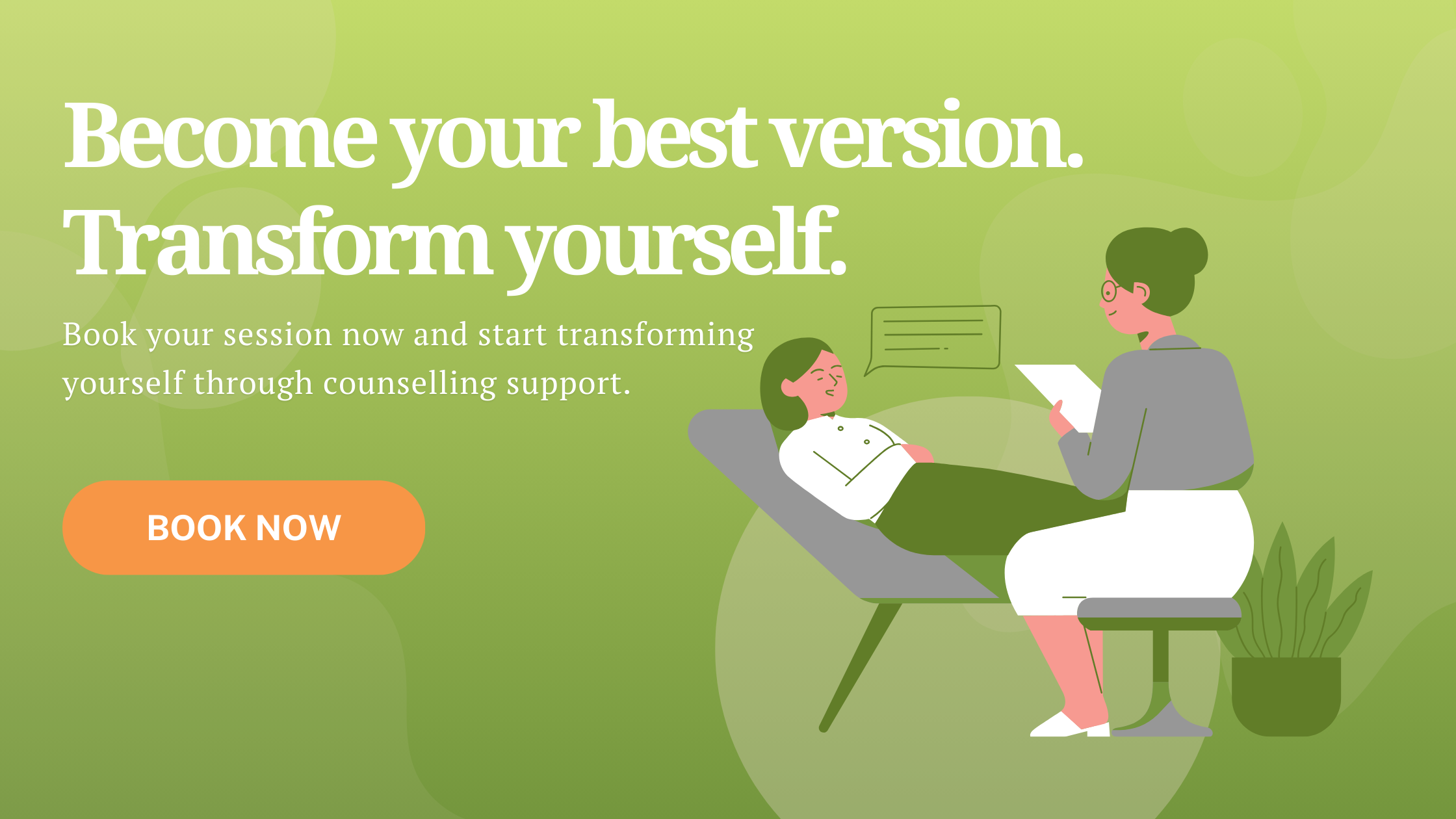
So, you and your partner just had a fight. Maybe it was around a small issue, maybe it was over something big, and maybe it was a perpetuating argument that has been repeating for months or years now. It blew up and a mixture of relationship poisons like harsh words, broken trust, shouting, contempt, criticism, silent treatment, resentment, hurt feelings, etc. left a bitter taste. But you want this partnership to continue. You want to repair your relationship, to restore connection between you and your partner, to get things back where they were or, more possibly, make them better. But at the same time, you don’t want to be hurt (again).
So, what do you do? How to heal a relationship after an argument?
According to Dr. John Gottman, most, if not all, couples argue, which is not a problem in itself. What determines the course of a relationship is how romantic partners see and handle those conflicts, how they relate to each other, and what they do after a fight to soothe and repair their relationship.
In other words, all relationships go through cycles of rupture and repair.
Ruptures in a relationship are inevitable…
When things are going well in a relationship, we feel respected, connected, and emotionally safe. We feel liked and appreciated, we are responsive to our partner’s emotions and needs, and feel like it is reciprocated. In short, we feel in tune with one another. Over time, this sense of mutual attunement contributes to building strong bonds and intimacy between people.
However, this harmonious state can be thrown off balance from time to time due to different factors, such as stress, insecurities, wrong assumptions, miscommunication, etc. We are not mind readers, no matter how finely tuned we are to each other’s moods and sensitivities. Mistakes and “misattunements” happen, and they can lead to ruptures in a relationship.
A rupture is a disruption of the emotional connection we have with a loved one. It can be small, like saying something insensitive unintentionally, or big and potentially non-negotiable, like a breach of trust. Typically, ruptures are colored with unpleasant feelings like hurt, anger, loneliness, sadness, disappointment, etc. No matter how much effort we put into a relationship, some ruptures will occur. What happens after the rupture is important. If left unaddressed and untreated, resentment can build and emotional intimacy weaken. However, if both partners engage in repairing, their relationship can not only heal but grow and thrive.
…Repairs are what matters
Repair attempts are any actions or statements that are aiming to prevent a conflict from escalating out of control, or, in some way, aiming to extend the olive branch after an argument. According to Dr. Gottman, repair attempts are a “secret weapon” of happy couples, whether they are aware they are using them or not. They are an act of loving behavior not only toward your partner but to the relationship itself. They communicate: “I care about you and about this relationship, so I am willing to be vulnerable and try to connect with you. I am not trying to win this fight, I am not against you. Instead, I want our relationship to win this fight. Please join me”.
All relationships are different, so repair attempts will vary from couple to couple. Some examples:
- Offering an apology (“I am sorry about what I said earlier, I didn’t mean it”)
- Statements that communicate you are still a team (“I love you”, “I know it’s not your fault”)
- Sharing appreciation (“Thank you for sharing that with me”, “I admire that you…”)
- Empathizing (“I understand”, “If I was in your shoes, I can imagine seeing things the same way”)
- Cracking an inside joke
- A small invitation to talk, like softly tapping a spot beside you, or offering them a drink or a snack
- A gentle physical touch, like holding their hand or offering a hug
It takes two to tango, and two to repair a relationship
Repair attempts take courage and insight, and need both partners to work. That’s right, both partners need to engage in repair for it to be successful, no matter who may seem to be more “wrong” or more “responsible for the damage”.
That said, Dr. Gottman and his colleagues tried to find the most effective kinds of repairs through a series of research. The problem was, they couldn’t find any consistency – sometimes the most beautifully crafted and honestly spoken apologies didn’t work, while other times, something that seems trivial, like a silly grimace, was very successful. They couldn’t quite figure it out until they started looking at the partner on the receiving end of a repair attempt. They found out that it’s not exactly the nature of the repair that makes it successful; it’s the willingness of the other partner to notice and receive those attempts.
Now, this willingness doesn’t stem merely from the other partner’s mood or good will, but from a number of different factors, one of the most important ones being the “balance in their “emotional bank account” which, most simply put, refers to how much they have felt seen, heard, understood, and appreciated in the relationship, especially lately. But it’s not so simple of course – this balance depends, again, on both sides. It takes making deposits to the emotional bank (like responding to partner’s needs, showing interest in what’s going on with them, empathizing and being there for them, showing appreciation for who they are or what they do, doing small acts of kindness, etc.) and also recognizing these efforts. But that’s a topic for a whole other blog. Let’s get back to the practical stuff.
Usually, the responsibility for an argument lies on both partners, although it doesn’t always seem like that. However, sometimes one partner shares a larger portion of responsibility, and only after they realize how much they have hurt their partner. If that’s the case, check out our article “How to apologize the right way after you hurt your partner“.
6 steps to Repair a Relationship after a Fight
Now that you know that ruptures happen even in the happiest relationships and that mastering the art of making and receiving repair attempts is crucial for healing a relationship, let’s see what you can do to de-escalate the tension after a fight with your partner and get your relationship back on track.
1. Take a time-out and explore how you feel
Repairing a relationship after a fight takes many gentle moves. However, it can be really difficult to be gentle in the heat of the moment or right after, especially when you feel hurt or angry. If you feel flooded with intense uncomfortable emotions, trying to resolve a conflict right there can be counterproductive – extend or escalate it, or even trigger a new one. Instead, in the aftermath of a heated argument, it may be best to give each other some time and space to take a breather and decompress. You can both use this time to process what happened, feel your feelings, and explore what this argument meant for you. This will be very important later when you sit together to resolve the issue.
A useful thing you can do to collect your thoughts and get in touch with yourself during this time is to follow a 3-step process:
-
Do a brain dump.
Like emptying the contents of a purse onto the table, spill the contents of your mind onto paper. All of it. Write down everything that you think and feel, without any particular order and a filter. No matter if it doesn’t make sense, no matter if it sounds silly, just get it all out.
This technique is particularly useful and relieving when you feel overwhelmed by uncomfortable thoughts and emotions. The act of taking the thoughts out of your mind and seeing them on paper helps diffuse the issue and calm your mind a little because there are not so many different thoughts bouncing around. -
Sit with your feelings.
After you write down everything you think about (and you may feel drained but relieved at this point; it’s normal), make some room for your feelings. How do you feel? Where do you feel it in your body? Can you name those feelings? Remember, you can experience different feelings and they can exist at the same time. You can feel love and anger toward your partner, you may appreciate them and feel disappointed about what they did. It’s okay, it’s your space; let the feelings flow.
-
Think about what your partner can do to help you feel better.
Ask yourself – what do I need? What it would take for me to feel different? What is my partner’s role for this to happen, and what is my role? Clearing this out can set you up for a more productive recovery conversation.
2. Refocus from “Me vs. You” to “We vs. The Problem”
When people feel hurt, angry, betrayed, disregarded, or disrespected, they tend to either attack or put up a wall and dismiss whatever the other person is trying to communicate (or both). These are self-protective actions, and they’re understandable. However, romantic relationships, rarely lead to a productive solution. Self-protection might be the first impulse at the moment, but remember that your partner probably feels the same way, and it won’t take you where you want to be – connected and safe with each other again. So, what will take you there then?
One person needs to break this cycle and show courage to expose themselves to a certain extent, to be vulnerable, and to re-focus from protecting themselves to protecting the relationship.
If you want to fix your relationship, you need to be on the same team. You are in a relationship not by force, but because you choose to be with each other. Your partner is not the enemy. You are not the enemy. You two, together, as a team, have a problem, that you may be able to fix together. But it takes someone to be vulnerable enough to take the first step.
Stepping back from a self-protection attitude and turning toward a relationship-protection frame of mind is not easy. It can be incredibly difficult, maybe some of the hardest work you can do as a couple. But it is the strongest tool you have for building your emotional bond and helping your relationship thrive.
3. Actively listen to your partner and validate their feelings
Feeling heard and understood is the need that lies in almost all conflicts. To fix the relationship after a fight, you can start a conversation by asking your partner to share their feelings and their point of view. For a moment, set aside your perspective, set aside judgment and prejudice, set aside the need to disagree and defend yourself, and just listen. Express interest in their needs, feelings, hopes, what hurt them, what they desire, what they lack. Try to put yourself in their shoes and see things from their perspective. Ideally, you want to come to the point where you understand how the way they see things and how they feel make sense. Even if this is difficult, try to find something you can agree with or that you understand, and acknowledge that.
You can validate their feelings by expressing understanding: “I understand now. I would probably feel the same way if I were in your spot” or by repeating or summarizing what they said: “It sounds like you felt hurt by what I said.”
Validating your partner’s feelings at this point doesn’t mean you agree with what they said during the argument or with their point of view. It doesn’t mean they are “right” or that they “won”. It just means you are willing to show them that you are there for them, that you are ready to listen and understand because you care about what’s important for them. When you start listening to understand, not to respond, it fulfills the need to feel heard and understood and does wonders for rebuilding trust, safety, and connection.
Hard? Yes. Effective? Yes, yes, and yes.
4. Share your side without pointing fingers
It’s important to share how you felt during the argument and how you experienced it. While doing this, it’s crucial to make sure you avoid blame and criticism. You can be in a conflict without telling the other person: “You’re bad!”
Focus on using “I statements” and avoid pointing fingers with sentences that start with something like “You always…” and “You never…”. For example, statements like: “You never listen to me” and “You don’t care about me” are a big no. And no, a crafty construction like: “You made me feel unheard” is not an “I statement”.
“I statements” are in the form of: “I feel – When – (bonus: Because)”.
For example: “I feel frustrated when I am constantly interrupted in a conversation” or: “I feel overwhelmed and upset when you yell at me during a conflict.” You can also add why this is so important to you, for example: “I shut down and it’s difficult for me to continue the conversation. Also, I feel scared when it happens and I don’t want to feel this way with you.”
What “I statements” ultimately do is create a more positive and less hostile atmosphere for communication because they frame a situation as something to be solved together, instead of sounding like a complaint about the other person or an attack on their character. This way, you decrease the possibility of your partner becoming defensive and increase the likelihood of them truly listening to you and adopting that “same team” mentality.
5. If you haven’t already, discover what the fight was really about
Fights about little things are often not about those little things at all. A fight over doing dishes may be, at its core, about unmet needs, failed expectations, respect, etc.
For example, imagine a scenario where Partner I didn’t do the dishes (again!) and Partner II complained about it, which blows up into an argument. What may be happening for Partner I is not that they just don’t like doing the dishes, but that they feel angry and unloved. They may be overwhelmed at work and worried about their mother who is sick, and they had a super stressful day. So, they perceive complaints from Partner II as a sign that they don’t care about their feelings. On the other hand, for Partner II, not doing the dishes after many complaints and conversations was a sign of disrespect; they felt unappreciated and taken for granted because they put in the effort to change little habits that are bothering Partner I and make little sacrifices to make their life together more comfortable, but don’t feel the efforts are recognized or reciprocated.
So, the fight was, obviously, not about the dishes. It was about the deeper needs of feeling loved, respected, and appreciated. When we don’t communicate openly, we can easily overlook what is going on, which can lead to miscommunication, resentment, and cycles of unproductive arguments without a real solution. So, in our example, when Partner I and Partner II discover what the fight was really about and which needs, wants, or expectations were not met, they can discuss together what they can do in the future to change that and help the other person feel better.
6. Work together toward finding a practical solution
Now that the situation calmed down and you shared your perspectives and feelings, try to come up with a solution that will prevent a fight like this from happening in the future. Discuss what both of you can do to help each other feel better about the issue. Ideally, you want to be able to put this topic to rest and move on, with both of you intentionally taking steps to stick to the plan you agree on.
In our previous example, Partner I can, for instance, make sure they share their feelings more often and communicate with their partner when they feel stressed. At the same time, they can show appreciation by noticing the little effort Partner II is investing in their home by expressing it with words and with initiating completing some housework tasks when they can. On the other hand, Partner II can make sure to check in with Partner I more often and make room for some slip-ups without turning to criticism. They can also set boundaries, make sure they don’t give over their limits, and don’t sacrifice their time and energy without it being necessary because it can lead to resentment. Both partners can also come up with a more detailed plan about what they would do and how they can discuss better if this problem comes up again.
If the same issue happens over and over again without a resolution you can both agree on, it may be wise to see a couple’s therapist. The right professional can help you tremendously in understanding your and your partner’s thoughts and feelings, emotional triggers and needs, identify the reason you’re stuck, and help you learn skills to better communicate and solve problems.
When to Seek Professional Help
While many arguments can be resolved through open communication, mutual understanding, and effort from both partners, there are times when seeking professional help may be necessary. Here are some signs that indicate it might be beneficial to consult with a couples therapist:
- Recurring Issues: If you find yourselves having the same arguments repeatedly without finding a resolution, it could indicate deeper underlying issues that need professional intervention.
- Emotional Disconnection: If you feel emotionally disconnected from your partner or if there is a persistent lack of intimacy despite efforts to reconnect, therapy can help explore and address these issues.
- Trust Issues: Trust is fundamental in any relationship. If trust has been broken or if there are ongoing trust issues that you struggle to resolve on your own, a therapist can guide you through rebuilding trust.
- Communication Breakdown: Difficulty in communicating effectively, constant misunderstandings, or feeling unheard or invalidated during discussions are signs that communication patterns may need professional guidance to improve.
- Impact on Well-being: Arguments and unresolved conflicts that significantly impact your mental health, causing anxiety, depression, or stress, are indicators that professional support may be necessary.
- Major Life Transitions: Significant life changes such as moving, having children, career changes, or the loss of a loved one can strain a relationship. Therapy can provide tools to navigate these transitions together.
- Individual Issues Impacting the Relationship: Personal issues such as unresolved trauma, addiction, or mental health concerns of either partner that affect the relationship dynamics may benefit from therapeutic intervention.
Remember, every relationship will face challenges, and arguments are a natural part of that process. The key to a healthy relationship lies in how you navigate and repair those ruptures. By practicing empathy, active listening, vulnerability, and a commitment to working together, you can strengthen your bond and grow as a couple. And when challenges feel overwhelming or persist despite your efforts, seeking the guidance of a trained professional can provide the insight and tools needed to heal and thrive together.
Understanding how to heal a relationship after an argument isn’t just about resolving the conflict itself; it’s about deepening your connection, fostering mutual respect, and building a foundation of trust and love that withstands the tests of time. With patience, effort, and a willingness to learn and grow, you can navigate through rough patches and emerge with a stronger, more resilient relationship.
Disclaimer: All these tips refer to after verbal arguments. If your relationship is physically or emotionally abusive, try to find a support system and consider a safe escape plan. An experienced professional can help you get through it and guide you in creating a plan of the next steps.
An argument in an otherwise healthy relationship can actually bring you closer, if it’s handled the right way. If conflict resolution is done right, it can bring positive things, such as learning how to meet each other’s needs better, how to communicate more effectively, and how to adapt to one another so you can both thrive. Overall, it’s a process, but it can be a powerful one. Try it, and good luck!
If this article was helpful to you in any way, please be free to share it with your friends and family. Also, share some of your useful tips for fixing a relationship after an argument in the comments.
 Interested in learning more about coaching or therapy? Contact us today.
Interested in learning more about coaching or therapy? Contact us today.









